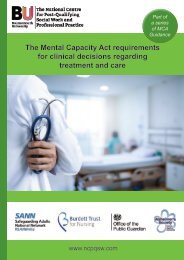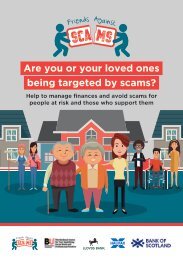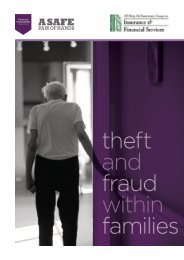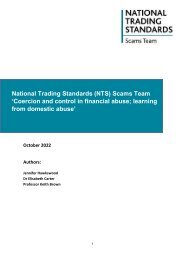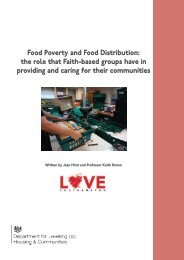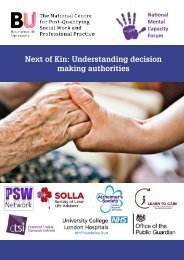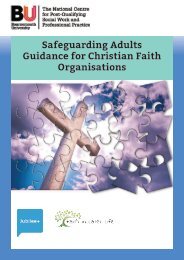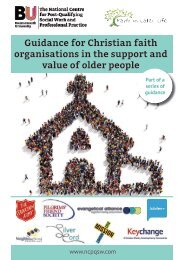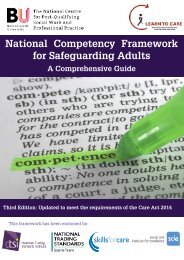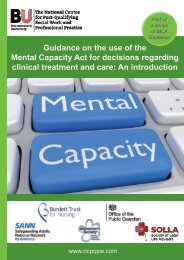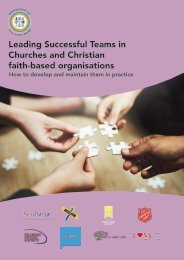Loneliness in Older People - Online
Some of the isolation and loneliness which people in the Fourth Age experience is due to the ageism in our society and in our churches. It is now time for churches to stand-up to the prejudices and discrimination of older people, to challenge the ageism we see in society and show that people in the Fourth Age are valued, celebrated, respected and included. Churches and Christian faith organisations should be leading the way to reach out to older people, to tackle ageist views and attitudes and demonstrate that older people matter.
Some of the isolation and loneliness which people in the Fourth Age experience is due to the ageism in our society and in our churches. It is now time for churches to stand-up to the
prejudices and discrimination of older people, to challenge the ageism we see in society and show that people in the Fourth Age are valued, celebrated, respected and included. Churches
and Christian faith organisations should be leading the way to reach out to older people, to tackle ageist views and attitudes and demonstrate that older people matter.
Create successful ePaper yourself
Turn your PDF publications into a flip-book with our unique Google optimized e-Paper software.
<strong>Lonel<strong>in</strong>ess</strong> of Car<strong>in</strong>g<br />
<strong>Lonel<strong>in</strong>ess</strong> of car<strong>in</strong>g is a common experience of those older people who are car<strong>in</strong>g for someone<br />
at home. With a sense of love and duty, many older carers struggle with the relentless and<br />
<strong>in</strong>creas<strong>in</strong>g demands of provid<strong>in</strong>g care for someone at home. Whether the cared-for has a<br />
physical disability, Dementia or life-limit<strong>in</strong>g condition, an older carer may struggle with the<br />
physical, mental and emotional demands of look<strong>in</strong>g after a loved one on a constant basis – with<br />
limited opportunities for their own social <strong>in</strong>teractions, rest and respite from their car<strong>in</strong>g role.<br />
Carers UK (2021) describe how carers can live <strong>in</strong> the “shadow of isolation” – where lonel<strong>in</strong>ess is a<br />
result of the isolation created by the situation of car<strong>in</strong>g for someone at home.<br />
For older people, liv<strong>in</strong>g <strong>in</strong> the Fourth Age, the role of carer may<br />
not be recognised. The man car<strong>in</strong>g for his wife sees himself as her<br />
husband, not her carer; the woman car<strong>in</strong>g for her husband sees this<br />
as part of her wedd<strong>in</strong>g vows and not a role which is separate from<br />
their marriage; the older couple who provide care for their disabled<br />
son do so out of love and protection, as they have done for the past<br />
decades and may not view themselves as carers.<br />
Christian faith organisations can make<br />
themselves and their activities more<br />
accessible to older people who may<br />
have a car<strong>in</strong>g role, <strong>in</strong>vit<strong>in</strong>g both the<br />
carer and cared-for to events and<br />
services. Pastoral care can be offered<br />
to meet the needs of both carer and<br />
cared-for – recognis<strong>in</strong>g that for the<br />
carer simply hav<strong>in</strong>g time away to do<br />
other th<strong>in</strong>gs, have time on their own<br />
or with someone else is a real luxury.<br />
Just as local councils and GP practices<br />
are required to identify those people<br />
who are carers, <strong>in</strong> order to assess and<br />
meet the health, social and f<strong>in</strong>ancial<br />
impacts of be<strong>in</strong>g a carer, Churches<br />
should identify those people <strong>in</strong> their<br />
membership who may be carers, <strong>in</strong><br />
order to identify and support the<br />
spiritual and pastoral needs of those<br />
provid<strong>in</strong>g on-go<strong>in</strong>g care – particularly<br />
where the carers are themselves liv<strong>in</strong>g<br />
<strong>in</strong> the Fourth age and may have their<br />
own health and social needs (see also<br />
section on the Embrac<strong>in</strong>g Age scheme<br />
Carers Connected).<br />
17 | <strong>Lonel<strong>in</strong>ess</strong> <strong>in</strong> <strong>Older</strong> <strong>People</strong>




